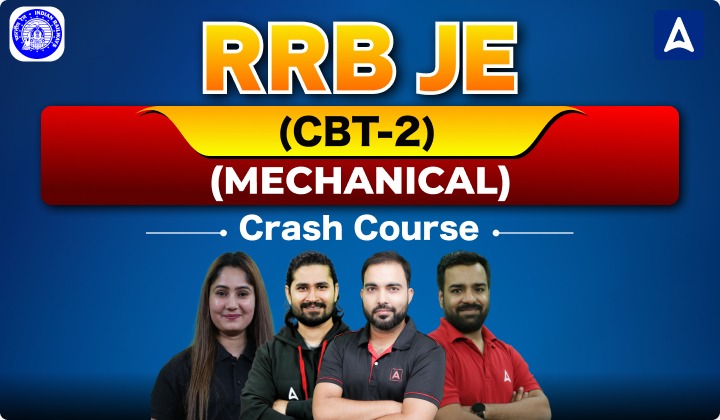Table of Contents
The Indian Institute of Technology (IIT) Roorkee will conduct the GATE 2025 Exam on 1, 2, 15, and 16 February 2025. This exam helps students get admission to master’s programs like ME, M. Tech, and Ph.D. at top institutions in India. The GATE score is also used by Public Sector Undertakings (PSUs) to hire for roles like Engineer Trainee, Management Trainee, and other positions in different fields. IIT Roorkee has posted the official GATE syllabus 2025 on its official website @gate2025.iitr.ac.in. The syllabus includes a detailed list of topics for each subject that will be covered in the exam. Understanding the GATE 2025 syllabus is important for students to identify key topics for each section and understand the marks distribution. Being familiar with the syllabus will help students score well on the exam.
GATE Syllabus 2025
Candidates aiming to succeed in the GATE 2025 exam must thoroughly understand the GATE syllabus 2025. This helps identify key topics and the weightage of each section. To achieve the best score, candidates should plan their study strategy based on the syllabus. IIT Roorkee has released the GATE Syllabus PDF for all branches on its official website. Those preparing for the GATE 2025 exam should check the complete syllabus using the direct link provided here.
IITR GATE Syllabus 2025
IIT Roorkee (IITR) will conduct the GATE 2025 exam, covering 30 subjects like Mechanical, Civil, Electrical, Chemical, and Computer Science Engineering, among others. Candidates should review the GATE 2025 syllabus to understand the important and challenging topics. The exam will have 65 questions, including General Aptitude, Engineering Mathematics, and specific technical subjects. For a complete syllabus, visit the official website at gate2025.iitr.ac.in. This will help candidates prepare well and aim for high scores.
GATE Syllabus 2025 – Overview
The GATE syllabus 2025 is available here in PDF format for applicants’ convenience. It includes all the topics and sub-topics that will be covered in the exam. Test takers should download the GATE Syllabus PDF to start their preparation.
| GATE Syllabus 2025 | |
| GATE Full Form | Graduate Aptitude Test for Engineering (GATE) |
| GATE Conducting Authority | Indian Institute of Technology Roorkee |
| GATE 2025 Total No. of Papers | 30 (Data Science & Artificial Intelligence added) |
| GATE 2025 Starting Date of Application | 28 August 2024 |
| GATE 2025 Last Date of Application(without late fees) | 3rd October 2024 |
| Mode of Exam | Computer Based Test (CBT) |
| Number of Questions Asked | 65 |
| GATE 2025 Marks Distribution | 100 Marks[ 15 General Aptitude + 85 Subject Questions] |
| GATE Exam Language | English |
| GATE 2025 Marking Scheme | One Mark and Two Marks |
| GATE 2025 Syllabus | Available Now |
| Negative Marking | Yes (for MCQ & MSQ) |
| GATE 2025 Syllabus Official Website | www.gate.iitr.ac.in |
Click here for the GATE 2025 Study Kit
GATE Syllabus 2025 PDF
Candidates preparing for the GATE exam can begin their studies by downloading the GATE syllabus PDF. This helps them plan their studies effectively by dividing the syllabus into subjects and chapters. The syllabus for each subject is easy to find and available for download. Candidates should aim to complete each topic in the GATE 2025 syllabus at least a month before the exam, giving them plenty of time for revision. A convenient link to download the GATE syllabus PDF is provided below.
GATE Syllabus 2025 – Subject Wise
Aspiring candidates preparing for the GATE 2025 Exam need to focus on key topics that are critical for the GATE Exam. Gaining a comprehensive understanding and mastery of these subject-wise topics from the GATE Syllabus 2025 is crucial for anyone aiming to achieve high scores in this year’s GATE Exam.
| GATE Subject Wise Syllabus Topics | |
| Discipline | Topics |
| General Aptitude (Common for all papers) |
|
| Aerospace Engineering |
|
| Agricultural Engineering |
|
| Architecture and Planning |
|
| Biomedical Engineering |
|
| Biotechnology |
|
| Civil Engineering |
|
| Chemical Engineering |
|
| Computer Science and Information Technology |
|
| Chemistry |
|
| Electronics and Communications Engineering |
|
| Electrical Engineering |
|
| Environmental Science and Engineering |
|
| Ecology and Evolution |
|
| Geomatics Engineering |
|
| Geology and Geophysics |
|
| Instrumentation Engineering |
|
| Mathematics |
|
| Mechanical Engineering |
|
| Mining Engineering |
|
| Metallurgical Engineering |
|
| Naval Architecture and Marine Engineering |
|
| Physics |
|
| Production and Industrial Engineering |
|
| Petroleum Engineering |
|
| Textile Engineering and Fibre Science |
|
| Statistics |
|
GATE General Aptitude Syllabus 2025
In the GATE Exam, a total of 15 marks are dedicated to the General Aptitude Section consisting of questions from reasoning, quantitative aptitude, and English. The GATE General Aptitude Syllabus 2025 can be downloaded by the candidates through the link given below:
GATE General Aptitude Syllabus 2025 PDF-Click Here
GATE 2025 Latest Syllabus
It’s important to note that the Graduate Aptitude Test for Engineering Exam 2025 will be exclusively based on the GATE New Syllabus. Therefore, engineering graduates and third-year students should acquaint themselves with the GATE Latest Syllabus, which covers areas such as Data Science & Artificial Intelligence, Civil, Electrical, Mechanical, and more.
GATE Syllabus 2025 Branch Wise PDF
Candidates must have a clear understanding of the GATE syllabus to develop an efficient preparation approach. The syllabus caters to the GATE exam’s 30 various disciplines, with each branch having its own defined syllabus provided by the appropriate authorities. Candidates can obtain the GATE syllabus 2025 by downloading it from the link provided below.
| GATE Syllabus 2025 Branch Wise PDF | |
| Branch | Syllabus PDF |
| Aerospace Engineering | Download PDF |
| Agriculture Engineering | Download PDF |
| Architecture and Planning | Download PDF |
| Biomedical Engineering | Download PDF |
| Biotechnology | Download PDF |
| Civil Engineering | Download PDF |
| Chemical Engineering | Download PDF |
| Computer Science and Engineering | Download PDF |
| Chemistry | Download PDF |
| Data Science & Artificial Intelligence | Download PDF |
| Electronics and Communication Engineering | Download PDF |
| Electrical Engineering | Download PDF |
| Environmental Science and Engineering | Download PDF |
| Ecology and Evolution | Download PDF |
| Geomatics Engineering | Download PDF |
| Geology and Geophysics | Download PDF |
| Instrumentation Engineering | Download PDF |
| Mathematics | Download PDF |
| Mechanical Engineering | Download PDF |
| Mining Engineering | Download PDF |
| Metallurgical Engineering | Download PDF |
| Naval Architecture and Marine Engineering | Download PDF |
| Petroleum Engineering | Download PDF |
| Physics | Download PDF |
| Production and Industrial Engineering | Download PDF |
| Statistics | Download PDF |
| Textile Engineering and Fibre Science | Download PDF |
| Engineering Sciences | Download PDF |
| Humanities and Social Sciences | Download PDF |
| Life Sciences | Download PDF |
GATE Exam Pattern 2025
GATE Exam Pattern 2025
In the GATE 2024 Exam, every one of the questions will be 1 mark and 2 marks in total 100 marks. Eligible Candidates should check the GATE Exam Pattern 2025 to understand the exam briefly by knowing the number of questions, complete marks, and so on down underneath:
| GATE Exam Pattern | |
| Particulars | Details |
| GATE 2025 Mode of Examination | Computer-Based Test (CBT) |
| GATE 2025 Total Time Duration | 3 hours (180 minutes) |
| GATE 2025 Total Number of Subjects (Papers) | 30 |
| GATE 2025 Exam Sections |
|
| GATE 2025 Type of Questions |
|
| GATE 2025 Number of Questions | 10 (GA) + 55 (subject) = 65 Questions |
| GATE 2025 Distribution of Marks in all Papers except papers AR, CY, DA, EY, GG, MA, PH, ST, XH and XL |
|
| GATE 2025 Distribution of Marks in papers AR, CY, DA, EY, GG, MA, PH, ST, XH and XL |
|
| GATE 2025 Marking Scheme | Questions carry 1 mark and 2 marks. |
| GATE 2025 Negative Marking |
|
GATE Syllabus Based Preparation Tips
The GATE Syllabus 2025 is extensive, so those planning to take the exam need a solid strategy to cover all the key topics in their subjects.
Here are some top GATE preparation tips that successful candidates have used:
- Begin your GATE preparation by thoroughly understanding the syllabus. This helps you identify the important topics and organize your study plan.
- Review the GATE 2025 exam pattern to become familiar with the structure of the question paper and the time limits.
- Take GATE 2025 mock tests every day to improve your time management skills.
- Use the best GATE books and online courses to gain a deeper understanding of complex topics.
- Solve as many previous years’ GATE question papers as possible. This helps you understand how the papers are set and identify frequently asked topics.

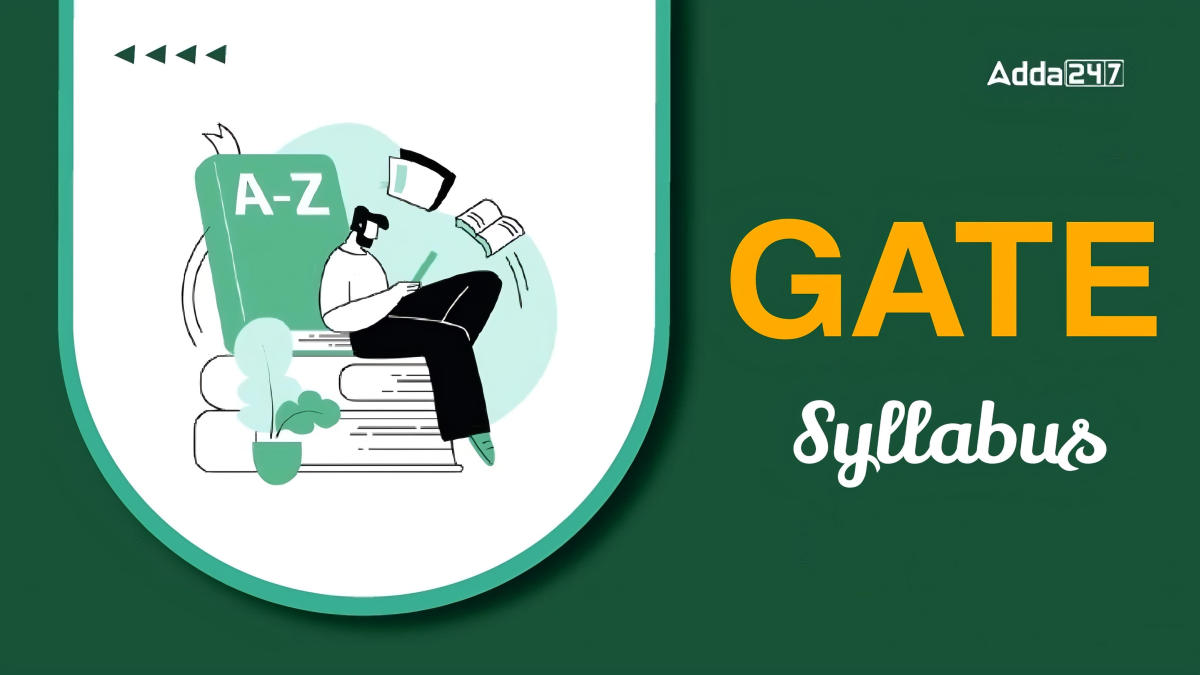


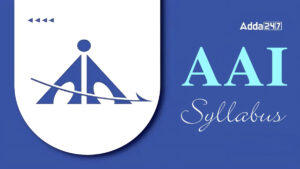 AAI ATC Syllabus & Exam Pattern 2025...
AAI ATC Syllabus & Exam Pattern 2025...
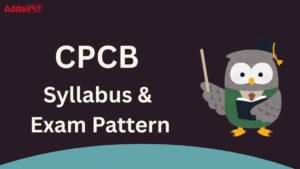 CPCB Syllabus With Exam Pattern 2025, Do...
CPCB Syllabus With Exam Pattern 2025, Do...
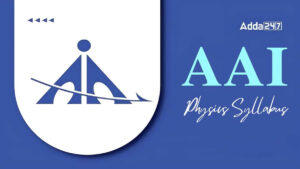 AAI JE ATC Physics Syllabus & Exam P...
AAI JE ATC Physics Syllabus & Exam P...








